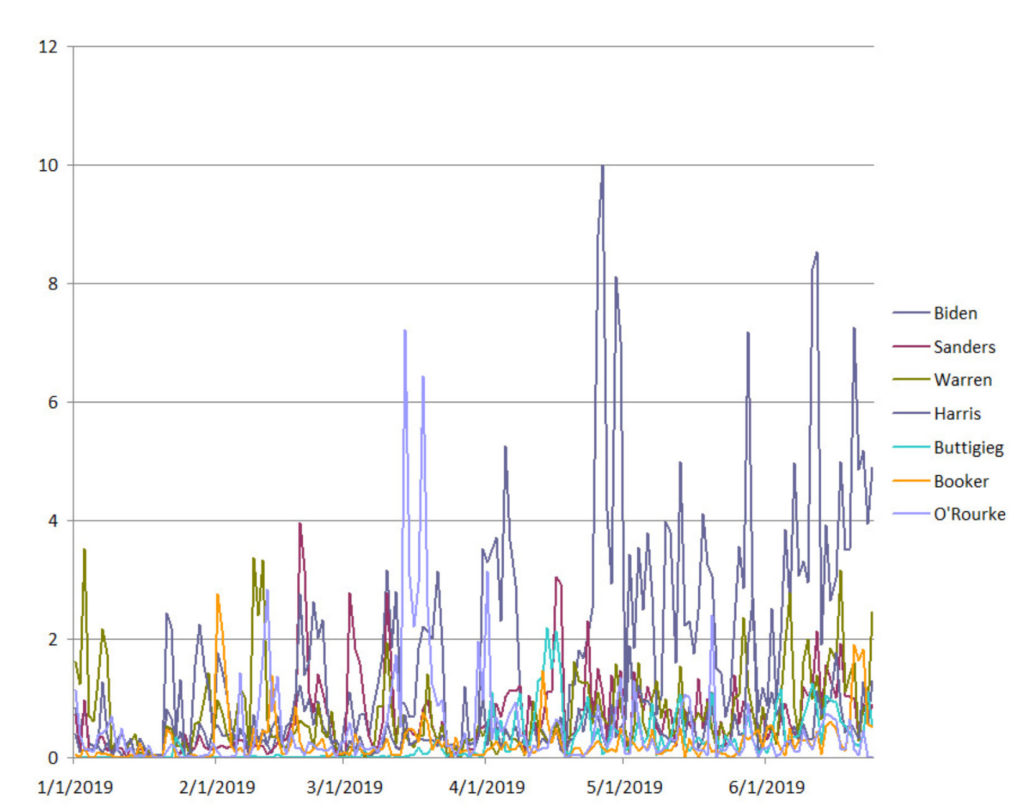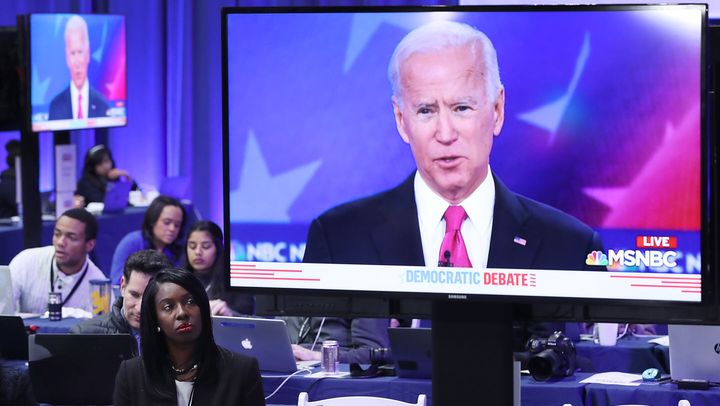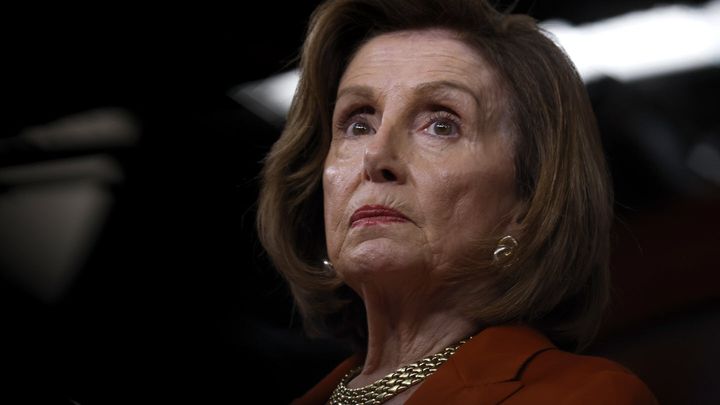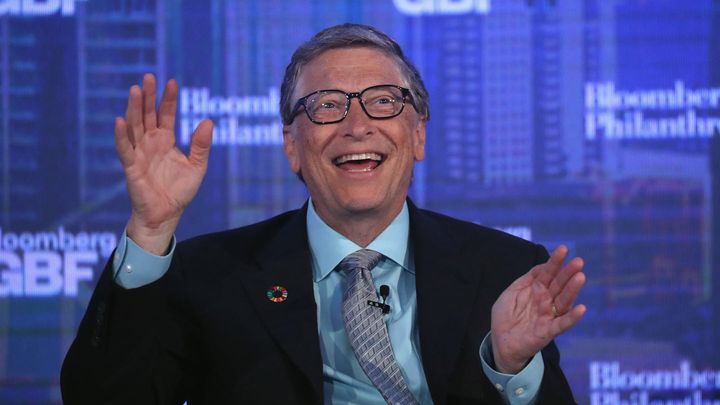The most influential cable news channel among liberals, MSNBC, has a habit of taking cheap shots against one of the leading Democratic presidential contenders.
According to prime time host Chris Matthews, Sen. Bernie Sanders (D-Vt.) is not the type of person who would help you if you were lying on the side of the road injured. A self-proclaimed body language expert who was a guest of weekend host Joy Reid speculated that Sanders lied during the most recent debate because of the 78-year-old candidate’s slouched posture. “He turtles,” the guest said. “His eye level is below his shoulders. This is trying to hide in plain sight.”
These digs on Sanders come as his campaign surges in early voting states and he threatens to overtake former Vice President Joe Biden in most national polls. Before Sanders’ recent polling surge, he was often left out of the station’s coverage of the 2020 elections altogether. Despite his campaigns viral grassroots energy—observable at his rallies and through his fundraising figures—Sanders was excluded from graphics and his polling and fundraising numbers were misreported in ways that made his campaign look less successful than it was.
Meanwhile, MSNBC has provided Biden with a lot of positive coverage. A June 2019 analysis of data from the Global Database of Events, Language, and Tone by Columbia Journalism Review’s Public Editor for MSNBC Maria Bustillos found that Biden had received the bulk of the station’s 2020 election coverage.

An analysis of MSNBC transcripts from August and September by In These Times that looked at how often Sanders, Biden and Sen. Elizabeth Warren (D-Mass.) were mentioned and the tone of the coverage produced similar findings. “Over the two months, these six programs focused on Biden, often to the exclusion of Warren and Sanders,” In These Times found. “Sanders received not only the least total coverage (less than one-third of Biden’s), but the most negative.”
Comcast Executives Give Big to Biden
A Sludge review of Federal Election Commission records shows Biden is the preferred candidate of the station’s owners, the behemoth Comcast Corporation.
Biden has received 17 large campaign contributions from executives and vice presidents at Comcast, including eight for the legal maximum of $2,800. Of all the other candidates still in the race, only South Bend, Indiana Mayor Pete Buttigieg has received any Comcast executive contributions—Buttigieg received a single contribution from Comcast Managing Director Amy Banse.
In addition, Comcast’s top lobbyist, David Cohen, co-hosted Biden’s kick-off fundraiser in April and he is listed as a bundler for the campaign, meaning that he has collected at least $25,000 in contributions from others for Biden.
Here’s the full list of Biden’s 2019 contributions from Comcast executives and vice presidents according to the latest available data from the FEC.
Comcast’s support for Biden is not new. The company’s executives and other employees have given Biden’s campaigns $153,566 since 1989, making it the ex-senator’s seventh largest career contributor, according to the Center for Responsive Politics.
From a policy point of view, Comcast’s support of Biden makes sense. Comcast has been a leading force against neutrality rules, spending millions on lobbying against the issue, and, unlike Sanders and Warren, Biden’s record does not suggest that he would be a strong advocate for restoring net neutrality as president.
In 2006, as a member of the Senate Judiciary Committee, Biden said that he did not think net neutrality rules were needed. “[Biden] indicated that no preemptive laws were necessary because if violations do happen, such a public outcry will develop that ‘the chairman will be required to hold this meeting in this largest room in the Capitol, and there will be lines wandering all the way down to the White House,’” CNET reported. The next year, he declined to co-sponsor the Internet Freedom Preservation Act, a bipartisan bill that would amend the Communication Act of 1934 to include net neutrality protections. Sanders was a co-sponsor of the bill. Warren signed on as a co-sponsor of Sen. Ed Markey’s (D-Mass.) net neutrality bill in February 2014 just weeks after becoming a U.S. senator.
Comcast is the nation’s largest broadband provider, operating regional monopolies that give consumers no choice but to subscribe to their services or have no home internet service. About 68 million Americans have access to no broadband or only one internet service provider. For the majority of those with just one ISP option, that option is Comcast. In 2018, Comcast’s revenue from its internet division alone was more than $17 billion.
Sanders has called for Comcast’s regional broadband internet and cable monopolies to be broken up and Warren has called for aggressive antitrust action tech companies. Biden, on the other hand, has not put forth an antitrust platform and has a history of fighting against strong antitrust rules.
In the 1970’s, Biden broke with his Democratic colleagues to oppose legislation that would have blocked corporate mergers based on the total size of the resulting company. Biden voted with Republicans to exempt soft drink companies from antitrust legislation and he voted against a bill from Sen. Ed Kennendy (D-Mass.) to ensure consumers had authority to sue companies for antitrust violations.
“The Biden-Kennedy split carried symbolic connotations beyond the policy implications of their individual votes,” HuffPost reported. “Where Kennedy wanted to use the Judiciary Committee to continue the old New Deal-era attack on corporate power, Biden became an advocate for corporate interests that had previously been associated with the Republican Party.”
Last year, Comcast spent more than $13 million on lobbying the federal government. In 2014, the company’s PAC donated to nearly every member of the congressional committees reviewing its bid to take over TimeWarner Cable, according to Politico. Former Sen. Al Franken (D-Minn.) told Politico that the company had “an army of over 100 lobbyists ready to swarm Capitol Hill.”
Related:



